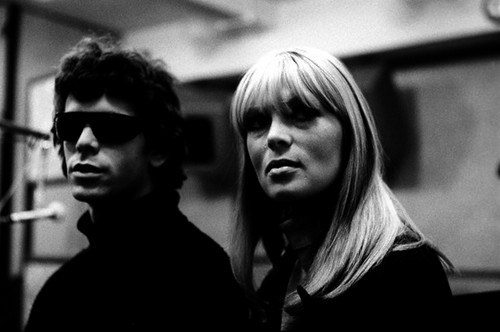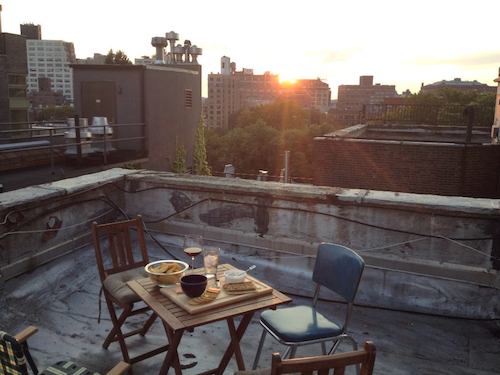What would we do without our friends? I’ll never know, because my friends are thoughtful and compassionate and ensured that I did not spend an evening alone in New York all this week. It was great, and one way I know it was great is that I hardly looked at the internet at all. Luckily for us, my friends outside New York are great, too. They sent me a steady stream of interesting articles, which just goes to show that you should stop following the news and do what my brother says. Today is Friday, and I get by with a little shelf for my pens. Won’t you enjoy support beyond your merit with me?
Tag Archives: PS 122
A story I often tell about Lou Reed

Lou Reed and Nico, circa 1965
I saw Lou Reed three times when I lived in New York. Once was in the now-defunct Around the Clock diner at approximately 4:30am, where he looked like a photograph of Lou Reed that had been taped to a booth across the room. I was impaired, so that one might have been on me. Once was outside Yaffa Cafe. And once was when he played briefly at Performance Space 122, and I ran sound.
He was fresh off a series of shows at Joe’s Pub, the smaller venue in the Public Theater, where he had reportedly fired not one but two sound operators. Lou Reed was not, at that time, in charge of personnel at the Public Theatre, but he had insisted that those two techs be fired as a condition of his continued engagement. My friend Duane told me the story with his usual glowing eyes.
“He got a guy at Mercury Lounge fired, too,” Duane said. “And I guess he fired his touring engineer this summer.”
It was Duane’s assessment that Lou Reed had fired every sound operator he’d worked with that year. The New York technical theatre industry amplifies everything, so to speak, so it was impossible to know how much of this report was true. Sound operators generally understand the world as an unfair struggle between talent and techs, in which talent would obliterate techs completely but for their ethical superiority. Still, Lou Reed was not known for his easygoing demeanor.
Also, I was not a skilled sound operator. I had a good ear and I remembered what people who knew what they were doing had told me, but Steve Albini I weren’t. I assumed every sound problem was the result of a blown crossover, and from there I went on bullshit and conjecture. Probably, Lou Reed would play “Satellite of Love” through my mix and hear his signature dry, spacey sound as a fart blown through a trumpet, and then he would fire me.
I had taken Duane’s advice and started smoking about a year earlier, and by that time I was up to a pack a day. We started load-in around 10am and finished our rough sound check around four, at which time I ran out front to smoke a Lucky. PS 122 had a giant steel gate about ten feet in front of the front doors, from the time when the East Village was a vibrant center of both performance art and stabbing, and it made a kind of enclosure for the smokers. I had just finished lighting up when I was joined in that steel cage by one L. Reed.
He didn’t look happy to see me, either. I briefly considered discarding my Lucky and going back inside, but that would have been weird. I offered him my lighter at roughly the same moment he got his lit. Then I was quiet. Then I said that I didn’t want to make him uncomfortable, but I was really happy to be working with him, and he had symbolized New York for me when I was a kid and didn’t really know what the city was like, so I considered all of this a lucky chance that I would probably tell people about later, and I hoped he liked the mix.
“Yeah,” he said. “It sounds good.”
Then he looked out over the cage in a way that indicated he was thinking about German art or transsexuals and didn’t want to talk anymore. I finished my Lucky and went inside. That night he played his songs and then went off to keep being Lou Reed, and I stayed and cleaned up.
I have told the story so many times, with exaggerations deemed appropriate to so many different contexts, that I cannot reliably say how much of it is true. My memory of what he looked like is problematically entangled with Eric Bogosian, whom I also met that week and who looked kind of the same. I remember Lou Reed the same way I remember New York: frightening, charged with meaning that may not strictly have been present, smaller than I expected. We will not see those old icons again.

